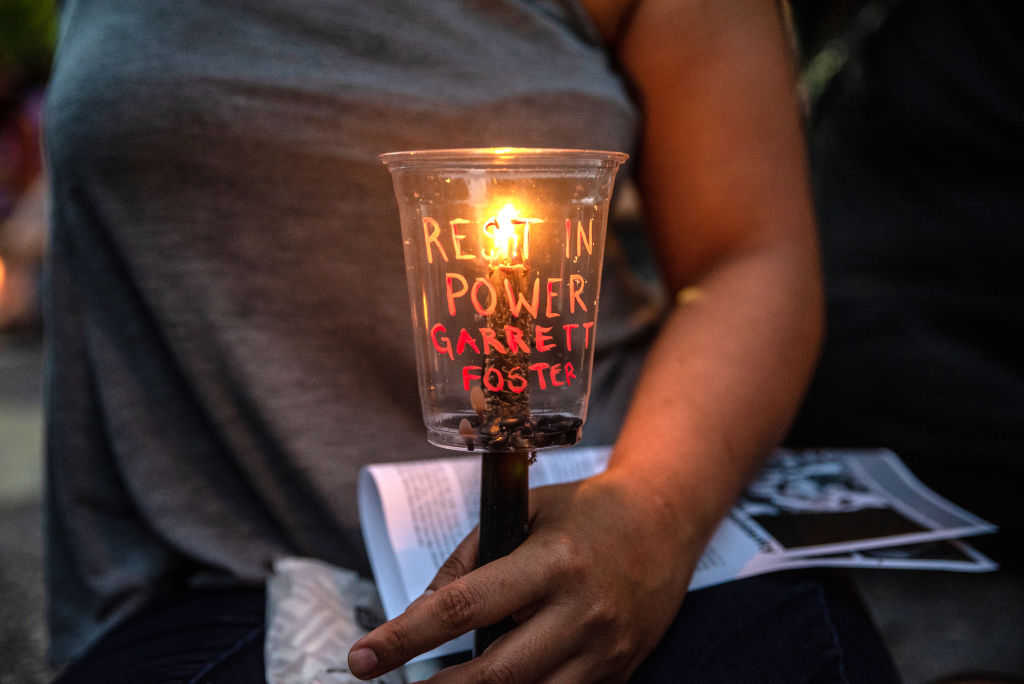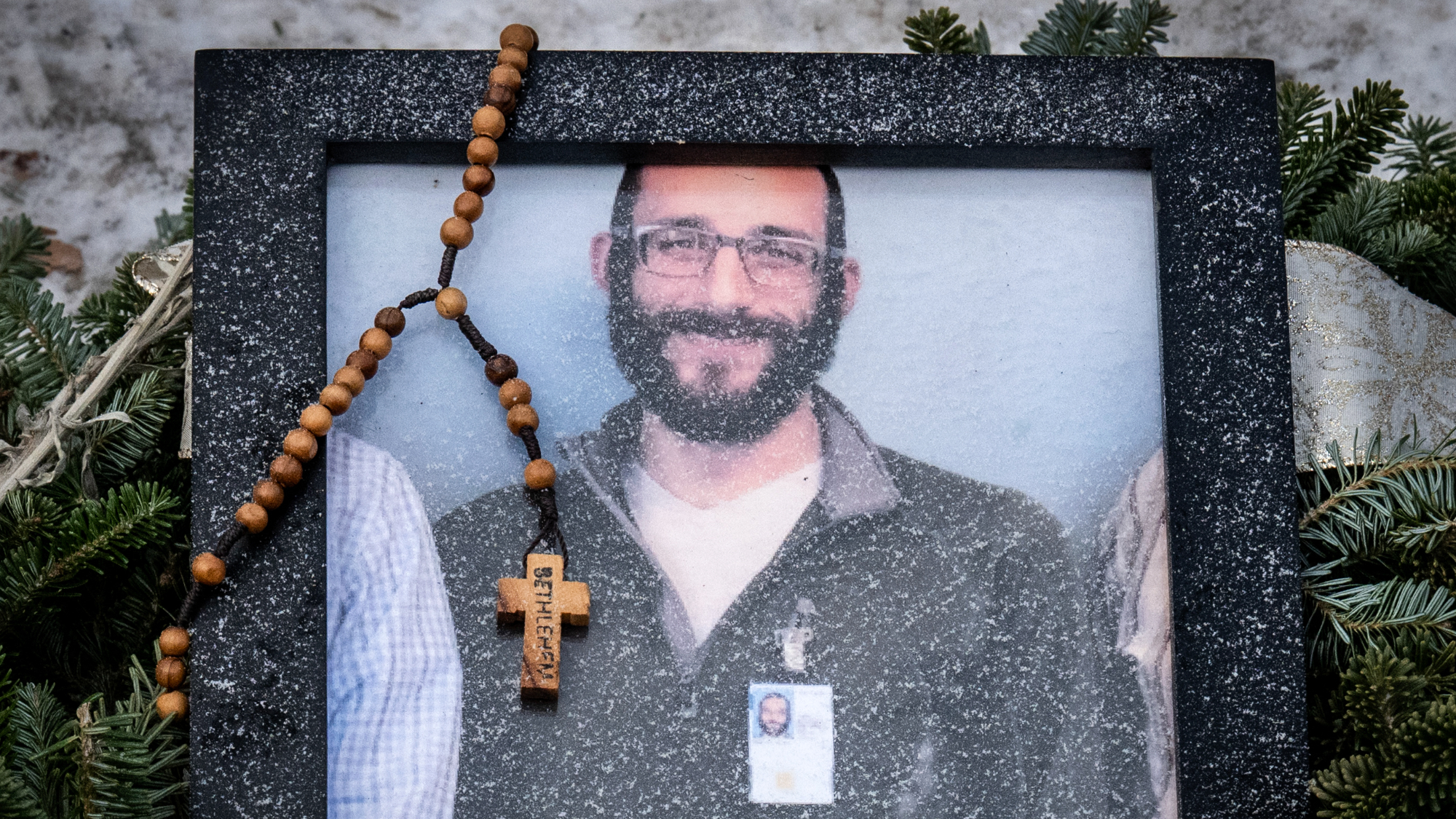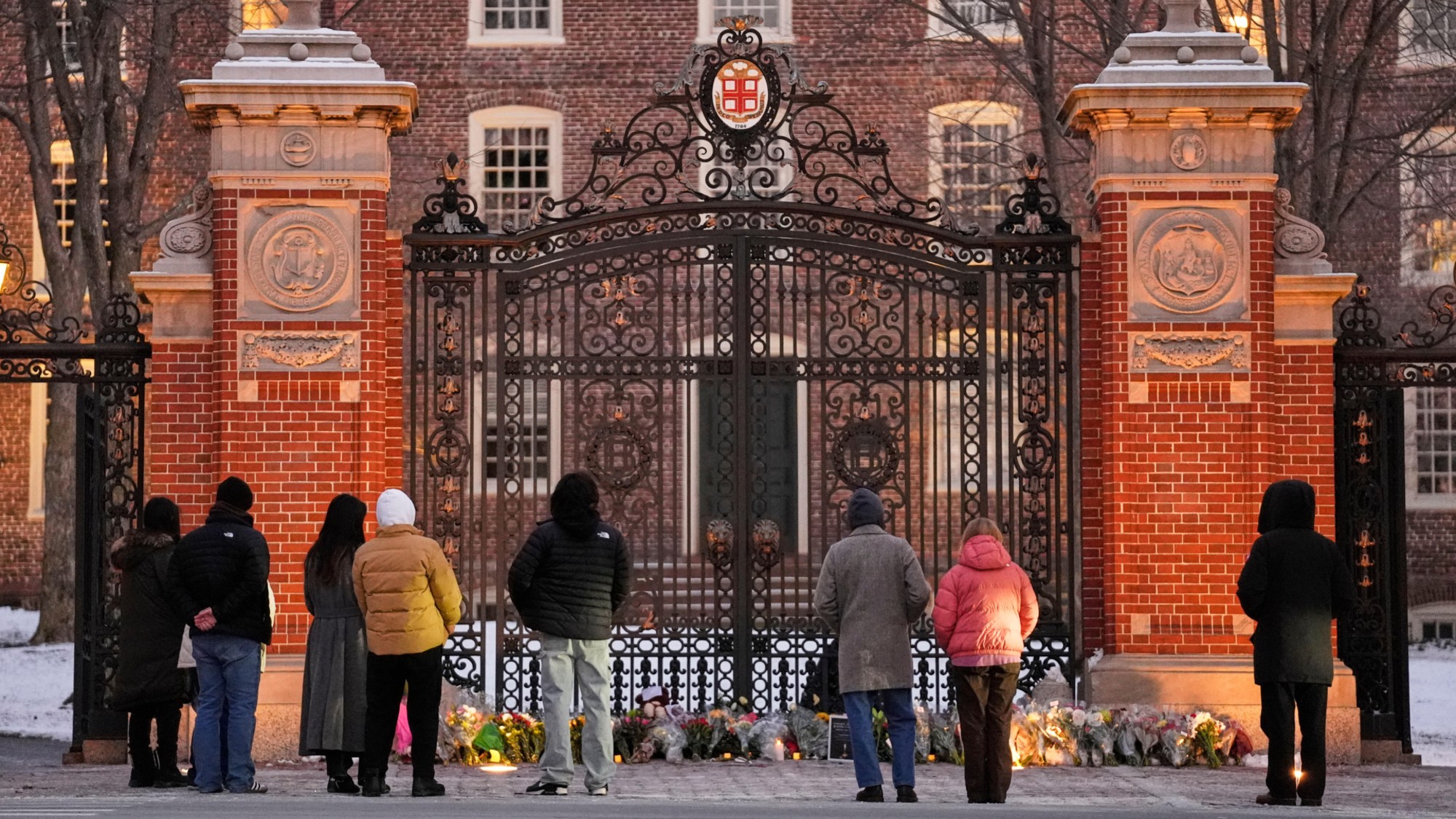Texas man who killed protester sentenced to 25 years as Gov. Abbott's pardon vow lingers


A free daily email with the biggest news stories of the day – and the best features from TheWeek.com
You are now subscribed
Your newsletter sign-up was successful
A Texas state judge on Wednesday sentenced Daniel Perry, 37, to 25 years in prison for killing Garret Foster, 28, during a protest against police brutality in 2020. Perry, a former Army sergeant, shot Foster, an Air Force veteran, several times through the window of his car, which he had driven into the crowd of protesters in Austin. Foster had been legally carrying an AK-47 rifle across his chest, and Perry said in court that Foster had approached his car and raised the gun toward him and he fired in self-defense. Witnesses told the jury that nobody saw Foster point the gun toward Perry or his car.
Foster, who was white, was at the protest to support his common-law wife, Whitney Mitchell, who is Black and wheelchair-bound since all four limbs were partially amputated when she was a teenager, Mitchell testified at Perry's sentencing hearing on Tuesday. She said Foster had been both her husband and caretaker for 11 years before he was shot dead.
Less than 24 hours after a jury convicted Perry of murder in April, Gov. Greg Abbott (R) said on social media that he would pardon him as quickly as possible and urged the Texas Board of Pardons and Paroles, which he appointed, to expeditiously review the case and send him a pardon recommendation to sign. A day later, unsealed court documents showed that Perry regularly shared racist memes in private messages and on social media, and frequently expressed a desire to kill protesters in the months leading up to his confrontation with Foster.
The Week
Escape your echo chamber. Get the facts behind the news, plus analysis from multiple perspectives.

Sign up for The Week's Free Newsletters
From our morning news briefing to a weekly Good News Newsletter, get the best of The Week delivered directly to your inbox.
From our morning news briefing to a weekly Good News Newsletter, get the best of The Week delivered directly to your inbox.
Abbott's office, asked whether the new evidence would change his position on pardoning Perry, shifted responsibility to the parole board, The Texas Tribune reports. The board has begun reviewing Perry's case, but likely won't make any recommendation until all his appeals are exhausted.
Perry's case was championed on conservative radio and TV, and "the issue for the governor is he has painted himself into a corner," University of Houston political scientist Brandon Rottinghaus tells The Washington Post. "There has always been a perception among the far right that he's not committed to the cause. Backing down now may hurt his image." The board of pardons was created in 1920 to take such politics out of the process, moving pardons from the hands of the governor to a panel of legal professionals, he added.
A free daily email with the biggest news stories of the day – and the best features from TheWeek.com
Peter has worked as a news and culture writer and editor at The Week since the site's launch in 2008. He covers politics, world affairs, religion and cultural currents. His journalism career began as a copy editor at a financial newswire and has included editorial positions at The New York Times Magazine, Facts on File, and Oregon State University.
-
 The Olympic timekeepers keeping the Games on track
The Olympic timekeepers keeping the Games on trackUnder the Radar Swiss watchmaking giant Omega has been at the finish line of every Olympic Games for nearly 100 years
-
 Will increasing tensions with Iran boil over into war?
Will increasing tensions with Iran boil over into war?Today’s Big Question President Donald Trump has recently been threatening the country
-
 Corruption: The spy sheikh and the president
Corruption: The spy sheikh and the presidentFeature Trump is at the center of another scandal
-
 Maxwell pleads 5th, offers Epstein answers for pardon
Maxwell pleads 5th, offers Epstein answers for pardonSpeed Read She offered to talk only if she first received a pardon from President Donald Trump
-
 Hong Kong jails democracy advocate Jimmy Lai
Hong Kong jails democracy advocate Jimmy LaiSpeed Read The former media tycoon was sentenced to 20 years in prison
-
 Ex-Illinois deputy gets 20 years for Massey murder
Ex-Illinois deputy gets 20 years for Massey murderSpeed Read Sean Grayson was sentenced for the 2024 killing of Sonya Massey
-
 Why have homicide rates reportedly plummeted in the last year?
Why have homicide rates reportedly plummeted in the last year?Today’s Big Question There could be more to the story than politics
-
 Demands for accountability mount in Alex Pretti killing
Demands for accountability mount in Alex Pretti killingSpeed Read Pretti was shot numerous times by an ICE agent in Minneapolis
-
 FBI bars Minnesota from ICE killing investigation
FBI bars Minnesota from ICE killing investigationSpeed Read The FBI had initially agreed to work with local officials
-
 ICE kills woman during Minneapolis protest
ICE kills woman during Minneapolis protestSpeed Read The 37-year-old woman appeared to be driving away when she was shot
-
 Campus security is under scrutiny again after the Brown shooting
Campus security is under scrutiny again after the Brown shootingTalking Points Questions surround a federal law called the Clery Act
